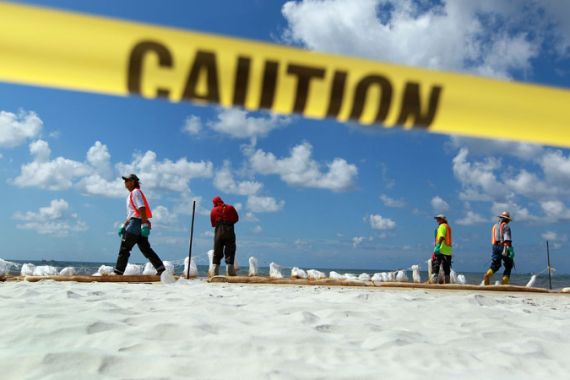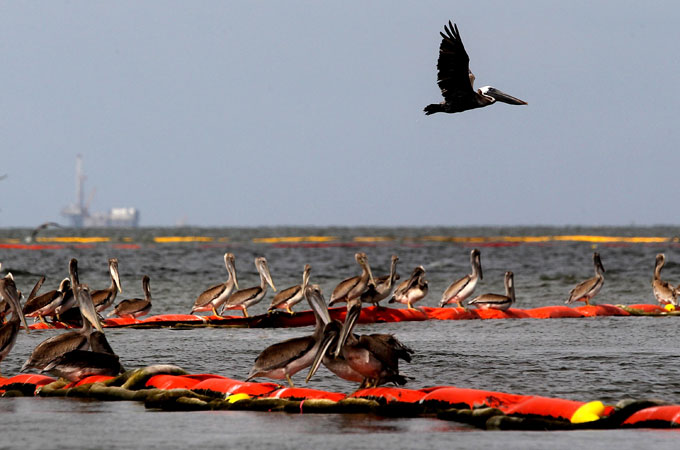US panel faults oil spill firms
Probe into Gulf of Mexico spill criticises firms involved and says they need “top-to-bottom reform”.

 |
| The panel said that BP was hurried and made confusing, last-minute changes to plans [GALLO/GETTY] |
A White House inquiry into the Gulf of Mexico oil spill has strongly criticised the three companies involved in the deadly accident and called for change.
The panel in Washington DC, the capital, said on Tuesday that BP, Halliburton and Transocean lacked a safety culture and that they need “top-to-bottom reform”.
Keep reading
list of 4 itemsWorld’s coral reefs face global bleaching crisis
Why is Germany maintaining economic ties with China?
Australia’s Great Barrier Reef suffers worst bleaching on record
It said that while no entity purposefully traded safety for reduced costs and therefore profits, a number of perceived acceptable risks were taken that added up to the incident that caused the deaths of 11 workers. About 650 million litres of oil were spilled into the sea.
The panel highlighted more than 12 decisions that led to the April 20 rig failure, saying they were both questionable and explainable.
The panel said that BP was hurried and made confusing, last-minute changes to plans that were unusual in the complex environment of deep water.
‘Rush to completion’
In the first apolitical and independent investigation of the disaster, the panel leaders said that the findings in sum exposed a lack of safety culture on the rig, with Reilly stating that all three companies were “laggards” in the industry and in “need of top-to-bottom reform”.
| in depth | |
|
They said BP could have operated more safely if the company took the time to get the necessary equipment and materials.
“We are aware of what appeared to be a rush to completion,” William K Reilly, a commission co-chairman, said.
Reilly said that it was unclear what drove people to determine they could not wait for equipment and materials to perform operations more safely.
‘Pressure’
The investigation spoke to an engineer who alleged that workers were pressured to complete work on the well, before the explosion.
“I know that there was pressure on this group of people to get done and move on,” Steve Lewism, the petroleum engineer, said.
“I have seen internal BP communications at the senior management level inquiring as to whether or not the well was going to be done on time, whether or not the rig would be released on time,” he said.
The firms’ representatives asserted that no corners were cut in safety procedures due to cost on the BP-leased offshore drilling rig.
While commission officials said they were not excusing BP, they wanted to stress that there was no clear single decision that came down solely to money that led to the disaster.
“Anytime you are talking about a million and a half dollars a day, money enters in. All I am saying is human beings did not sit there and sell safety down the river for dollars on the rig that night,” Fred H Bartlit Jr, the commission chief attorney, said.
However, Bob Graham, the commission co-chairman, said that a general culture of cost-cutting could not be completely dismissed as an issue.
Graham, the former Florida senator and governor, ended Tuesday’s proceedings by stating that he was worried that there was “a compulsion” to get the rig completed by a April 19-20 timetable set for it.
